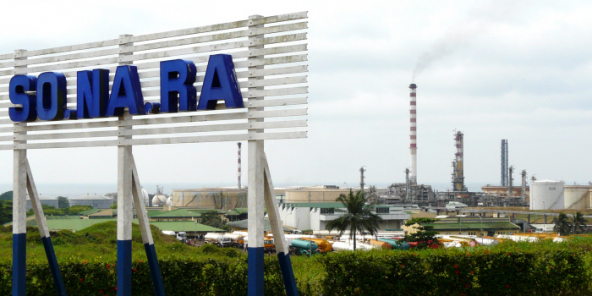The restructuring of the National Refining Company (SONARA) requires an investment of 700 billion FCFA ($ 1.2 billion) for the reconstruction of the plant and the continuation of works to extend and modernize the facilities.
The victim of a serious fire on May 31, 2019 which totally damaged 4 of the 13 production units and partially destroyed 4 others, the SONARA is subjected to idling. A disastrous situation for the Cameroonian economy which will have to mobilize nearly 700 billion FCFA to restart the production machine.
Except that this optimization of activity includes both the clearance of a huge debt estimated at more than 450 billion, to which should be added nearly 250 billion for the rehabilitation of facilities. An amount that Cameroon does not have, and that will have to be sought from bilateral and multilateral partners with what this entails, in particular as constraints on the money market.
The government fundraising plan provides for a set of mechanisms including both the rescheduling of SONARA’s debt over a five-year period, recourse to the money market through various types of financing, as well as bank loans, issues of securities and bond issues.
“The first evaluations of the consulting firms which took an interest in this case put the cost of the rehabilitations at around 250 billion FCFA. Negotiations are already underway with technical and financial partners who have expressed their interest in the rehabilitation of this refinery. However, the finalization of these negotiations remains dependent on the restructuring of the large debt of SONARA. The government is hard at work to complete this restructuring operation and allow the gradual amortization of this debt to begin, “Water and Energy Minister Gaston Eloundou Essomba said last Tuesday.
The authorities’ concern over the restructuring of this industrial flagship is understandable, as there is still some chiaroscuro over insurance. And for good reason, reliable information suggests that at the time of the disaster, the only refinery in the country did not warrant appropriate insurance coverage.
Commissioned four decades ago, SONARA, whose production capacity is 2.1 million tonnes of oil barrels per year, was before the fire, engaged in the modernization and extension of its production tool for more than 500 billion FCFA of investment. A production capacity which should be around 3.5 million tonnes of barrels per year by 2021 but whose current context suggests that the achievement of this objective is seriously jeopardized.



